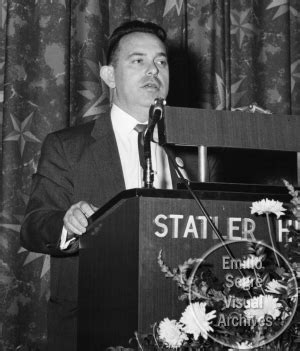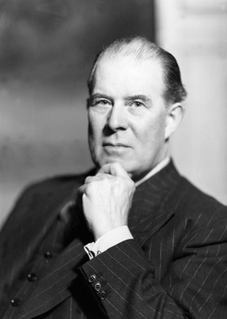A Quote by Rajneesh
These tenses-past, present and future-are not the tenses of time; they are tenses of the mind. That which is no longer before the mind becomes the past. That which is before the mind is the present. And that which is going to be before the mind is the future. Past is that which is no longer before you. Future is that which is not yet before you. And present is that which is before you and is slipping out of your sight. Soon it will be past.
Related Quotes
We human beings have enormous difficulty in focusing on the present; we always thinking about what we did, about how we could have done it better.... or else we think about the future, about what we're going to do.... But at this precise moment, you also realize that you can change your future by bringing the past into the present. Past and future only exist in our mind. The present moment, though, is outside of time, it's Eternity.... It isn't what you did in the past the will affect the present. It's what you do in the present that will redeem the past and thereby change the future.
Try to find the real tense of the report you are reading: Was it done, is it being done, or is something to be done? Reports are now written in four tenses: past tense, present tense, future tense, and pretense. Watch for novel uses of CONGRAM (CONtractor GRAMmer), defined by the past imperfect, the present insufficient, and the future absolutely perfect.
By keeping the mind in the present, unless you deliberately want to contemplate the past or future, it's possible to firmly face life without fear. Then, no thoughts of past failures or future problems will exist in the mind, and a truly positive mental state will result-fudoshin, the "immovable mind".
In general people experience their present naively, as it were, without being able to form an estimate of its contents; they have first to put themselves at a distance from it - the present, that is to say, must have become the past - before it can yield points of vantage from which to judge the future.
Surely, it is only when the mind is creatively empty that it is capable of finding out whether there is an ultimate reality or not. But, the mind is never creatively empty; it is always acquiring, always gathering, living on the past or in the future, or trying to be focused in the immediate present: it is never in that state of creativeness in which a new thing can take place. As the mind is a result of time, it cannot possibly understand that which is timeless, eternal.
There are some places which, seen for the first time, yet seem to strike a chord of recollection. "I have been here before," we think to ourselves, "and this is one of my true homes." It is no mystery for those philosophers who hold that all which we shall see, with all which we have seen and are seeing, exists already in an eternal now; that all those places are home to us which in the pattern of our life are twisting, in past, present and future, tendrils of remembrance round our heart-strings.
Past, n. That part of Eternity with some small fraction of which we have a slight and regrettable acquaintance. A moving line called the Present parts it from an imaginary period known as the Future. These two grand divisions of Eternity, of which the one is continually effacing the other, are entirely unlike. The one is dark with sorrow and disappointment, the other bright with prosperity and joy.... Yet the Past is the Future of yesterday, the Future is the Past of to-morrow. They are one-the knowledge and the dream.
The Hopi, an Indian tribe, have a language as sophisticated as ours, but no tenses for past, present and future. The division does not exist. What does this say about time? Matter, that thing the most solid and the well-known, which you are holding in your hands and which makes up your body, is now known to be mostly empty space. Empty space and points of light. What does this say about the reality of the world?
The task of the mind is to produce future, as the poet Paul Valery once put it. A mind is fundamentally an anticipator, an expectation-generator. It mines the present for clues, which it refines with the help of the materials it has saved from the past, turning them into anticipations of the future. And then it acts, rationally, on the basis of those hard-won anticipations.



































